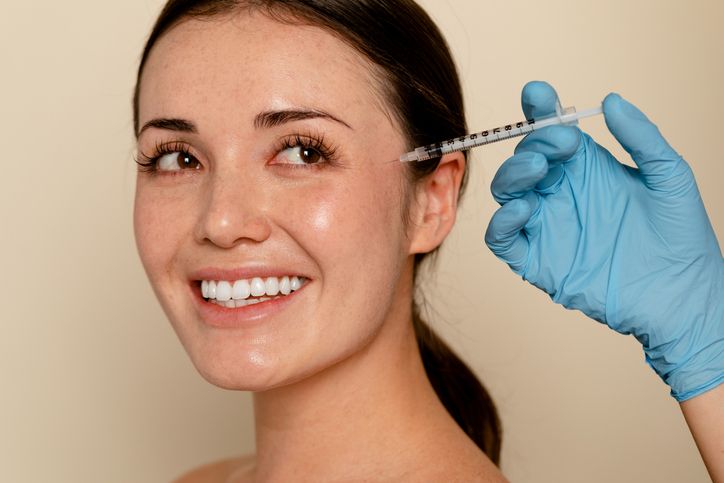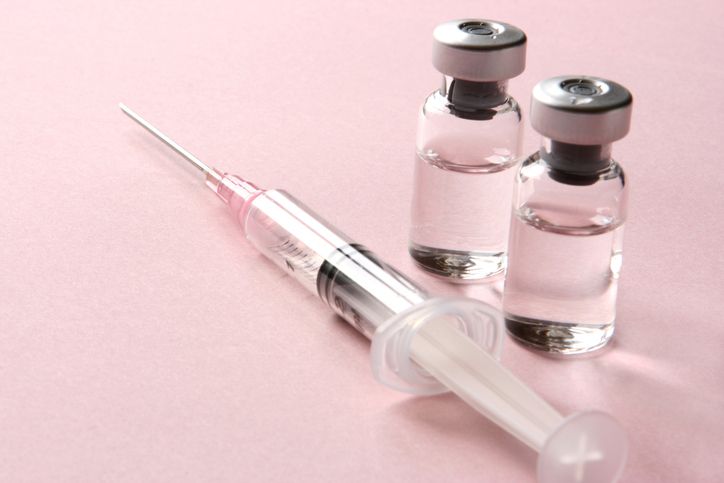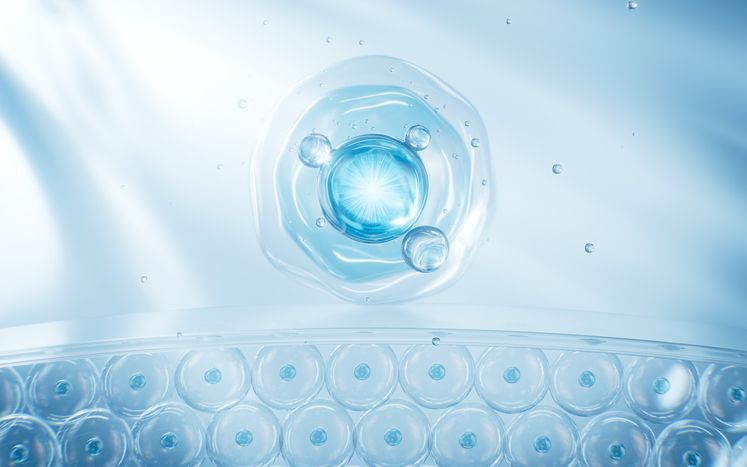
- Home
- Trend
- Weight Loss Strategies
- Acne Tips
- Hair Health Information
- Blemish Removal Tips
- Acne Scar Removal Tips
- Muscle Building Techniques
- Intimate Care Tips
- Postpartum Intimate Care
- Eye Bags Wiki
- Tips for Face Slimming
- Secret of Permanent Hair Removal
- Breast Enlargement Tips
- Cure to Snoring
- Marionette Lines
- Skin-Tightening Secrets
Still getting acne past 25, and can’t seem to stop the breakouts? TCM explains causes of acne on chin, neck, forehead, and reveals 4 major acne-prone constitutions!
TCM's View on Acne Causes
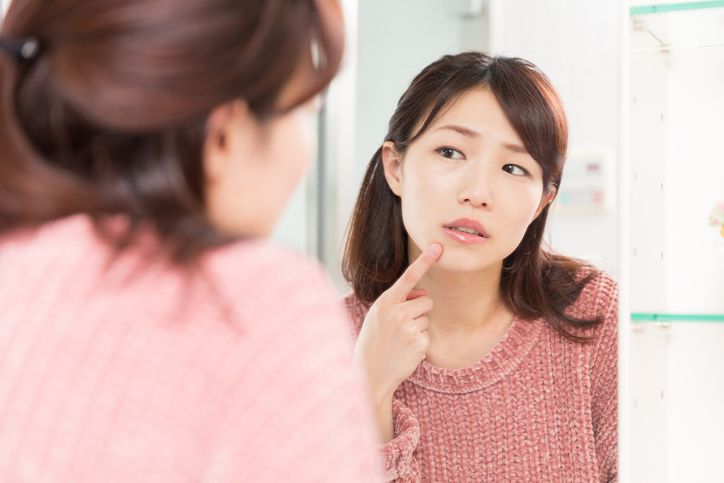
1. Damp-Heat in the Spleen and Stomach — Most Common Cause of Acne
A TCM practitioner specializing in acne explains that there are over ten syndromes and more than twenty possible causes of acne. Often, patients exhibit a mix of syndromes, so targeted treatment is key. Nearly 70% of adult acne cases stem from dysfunction in the spleen and stomach, resulting in damp-heat accumulation. This internal heat toxin manifests as acne on the face, scalp, chest, and back, often accompanied by symptoms such as bad breath, sticky stools, yellow urine, or constipation. The body needs to be nourished with yin and cleared of heat and toxins.
2. Liver Qi Stagnation and Emotional Stress
Hong Kong ranks fifth globally in stress levels. With widespread work stress among adults, one TCM doctor notes that many acne cases result from liver qi stagnation turning into internal heat. Treatment focuses on soothing the liver, regulating qi, and clearing heat toxins. However, if acne caused by liver qi stagnation becomes persistent and resistant to acupuncture and medication, emotional issues must be addressed first. TCM holds that unbalanced emotions are the root of liver qi stagnation.
3. Blood Deficiency with Excess Internal Heat (Yin Deficiency and Fire)
Many female acne sufferers have blood deficiency, with cold hands and feet. When they consume supplements or heat-inducing foods, it leads to internal heat symptoms like yin deficiency and fire. These patients often worsen their acne by consuming "cooling" foods like herbal teas, green tea, bitter melon, salads, and cold desserts, which upset the stomach and exacerbate breakouts.
4. Spleen Deficiency with Damp-Phlegm — Worse with Heat-Clearing Methods
Those prone to water retention or obesity often have a spleen deficiency with damp-phlegm constitution. They may develop cystic acne, lack appetite, have loose stools, fatigue, and weak limbs. Exercise leads to excessive sweating and energy depletion, plus insomnia. Treating this acne type requires strengthening the spleen and improving water metabolism, not just clearing heat. Drinking herbal teas on one’s own may worsen the spleen deficiency and complicate treatment.
TCM Explains Acne Location as Indicator of Internal Issues
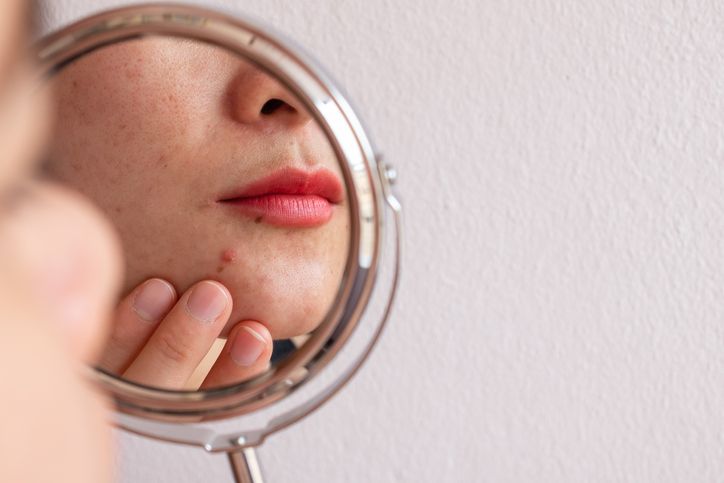
Forehead, Between Brows, Temples: Heart & Liver
According to TCM, acne on the forehead, between the eyebrows, temples, or hairline edge points to excessive heart or liver fire. Late nights, overthinking, and poor sleep prevent the heart from resting and cause liver fire to rise, resulting in acne in these areas. Treatment involves clearing heart fire, improving sleep, and calming the mind.
Left Cheek: Blood Circulation
While cheeks are common acne sites, left and right cheeks reflect different issues. Left cheek acne may signal poor detox function, slow metabolism, and overload on the liver and kidney. It may come with dull skin tone and pigmentation. Those with poor circulation or dampness should exercise regularly, hydrate well, and get more rest.
Right Cheek: Lungs
Poor lung health or smoking can cause acne on the right cheek, often with sore throat, dry mouth, gum swelling, phlegm, or dry cough. Lung heat dries the skin and causes clogged pores and peeling at the nose. In addition to hydration and rest, quit smoking and avoid heat-inducing, processed, or sugary foods. Aerobic exercise also helps strengthen lung function.
Nose, Neck, Around Mouth: Spleen & Stomach
Sudden redness on the nose, dark cystic acne on the neck, or small pustules around the mouth point to spleen and stomach damp-heat. Indigestion, poor appetite, sweet/spicy cravings, dark urine, bad breath, and unformed stools or constipation are signs. Both TCM and Western medicine recommend regular meals, light diet, and consistent sleep.
Chin, Mouth Corners, Philtrum: Kidneys & Female Hormones
Acne on the lower face reflects kidney and hormone imbalances, especially around menstruation. Many women get stubborn chin or jawline acne ("cystic acne") before their period due to blood deficiency and rising liver fire. Drinking water in moderation (not excessively), avoiding cold drinks and high-sugar foods, and eating neutral foods can help.
Back Acne: Bladder
The bladder meridian runs along the spine, so back acne relates to bladder damp-heat. It may also stem from poor detox function. Widespread acne could involve fungal or bacterial infections. Keep the back clean, avoid pressure or friction, and don’t over-cleanse. Don't squeeze the pimples—this may cause widespread infection. Rest and a calm mindset help.
免費體驗
Acne Treatment
1 Minute Self-Registration
Date should not be before minimal date
TCM Acne Treatments
1. Internal Herbal Medicine
Since external symptoms reflect internal issues, the foundation of TCM acne care is internal medicine to balance the organs. With over 20 types of acne syndromes, not all are "heat-related." Some worsen with cooling herbal drinks and develop into complex mixed cold-heat conditions, prolonging healing. Generic acne remedies often lack potency. Tailored herbs that improve digestion and expel dampness are more effective.
2. Acupuncture for Acne
Acupuncture is often used to stimulate relevant meridians, improving blood and qi flow, enhancing microcirculation, and speeding up skin regeneration. This not only prevents acne but helps fade acne scars.
3. Herbal Steam & Face Masks
Modern TCM clinics may use ultrasonic steamers that atomize herbal medicine into micro-particles to penetrate the skin. Traditional herbal clay masks may also be used. Combining acupuncture with external herbal applications can enhance treatment results.
4. Cupping Therapy
Cupping is also used for acne. From a TCM standpoint, acne relates to stagnant qi, blocked meridians, and blood stasis. Wet cupping (with minor bleeding) on the back helps clear heat and toxins and improve circulation. Studies show cupping enhances systemic microcirculation and is also used for slimming.
5. Ear Acupoint Therapy
Less commonly, ear acupoint embedding (using plant seeds or intradermal needles) is used. Each ear point corresponds to a body organ. Stimulating the correct point helps improve internal imbalances causing acne. Seeds (like vaccaria) are taped to the ear and pressed daily, or acupuncture may be applied directly to the point.
TCM’s Guide to Treating Adult Chin Acne
Chin and Mouth Acne Causes: Spleen-Stomach Damp-Heat & Hormonal Imbalance
Chin, mouth, jawline, and cystic acne ("stone acne") are common in women, especially before menstruation, due to rising liver fire and increased progesterone. These breakouts recur monthly and cause lingering acne scars. TCM explains that they should fade post-period, but if breakouts persist throughout the month, it may indicate spleen damp-heat or uterine issues.
Four Key Traits of Chin Acne
1. Lack of Rest
Modern women juggle many roles, leaving little time for themselves. Staying up late on the phone delays sleep past 1–2 AM, missing the prime hours for liver and spleen repair. Chronic fatigue, hormonal imbalance, liver fire, and digestive heat worsen acne.
2. Yellow Urine, Sticky Stools
If you haven’t taken vitamin B supplements but have dark urine, soft unformed stools, or constipation, check your hydration, meal timing, caffeine intake, and spicy food habits. Dark urine signals internal damp-heat—hydrate and eat light to prevent mouth-area breakouts.
3. Bad Breath
A bitter taste or halitosis is a health warning. Irregular meals, fast eating, late-night snacking, and greasy, cold, or sweet foods lead to spleen heat, reflux, or gastritis. Chin and mouth acne often reflect internal heat buildup—better to act early before symptoms escalate.
4. Irritability
TCM says “the liver stores blood.” Monthly blood and energy loss can weaken liver qi in women, leading to rising liver fire, which scorches the spleen and affects digestion. When liver fire flares to the skin, it shows as chin, mouth, and jawline acne, and may also cause mood swings, affecting relationships.
免費體驗
Acne Treatment
1 Minute Self-Registration
Date should not be before minimal date
Market-Available Teas to Help Chin Acne — No Brewing Required!
1. Sour Plum Drink (Suanmeitang)
Ume plums are neutral and astringent, promoting fluid production, appetite, and reducing fatigue. The sourness helps clear liver fire; hawthorn and licorice aid digestion. Widely available in herbal shops, but note its high sugar content—drink in moderation.
2. Purple Perilla Root Tea (Zibei Tiankui)
Tastes similar to sour plum with a sweet-and-sour profile. It cools the blood, reduces swelling, and clears lung heat. As it is quite cooling, check with a TCM doctor before drinking—those with cold hands and feet or mixed heat-cold constitutions may find it unsuitable.
3. Chamomile Tea
Chamomile helps calm the liver, reduce heat, and promote sleep. It’s slightly cooling and bitter, suitable for liver fire, emotional heat, and digestive dampness. Typically unsweetened and safer for regular use—up to three cups daily. Add orange peel if the taste is too floral.
Why TCM Acne Treatment May Fail
Many seek TCM hoping for a complete acne cure via herbs, acupuncture, and facial masks. But TCM relies heavily on individualized diagnosis and practitioner experience. Most Hong Kong patients have mixed heat-cold constitutions, requiring slow, layered treatment that may take years. Impatience is common. Plus, constitution can change with lifestyle, diet, and stress, making full recovery even harder.
Unlike Western medicine’s "one pill fits all," TCM must diagnose correctly before prescribing. A wrong diagnosis can lead down the wrong treatment path. Herbal treatments can span six months to two years and are costly. Some see improvement during treatment, but acne may return after stopping. TCM is slow but thorough; Western medicine is fast but generalized. Hopefully, those suffering from acne can find the treatment that truly works for them.
Stay Hydrated + Exercise + Do Perfect Medical Acne Treatment!
Some people find TCM treatments for acne to be hit-or-miss or lacking in potency, while Western medicine—though often fast-acting—can come with harsh side effects like stomach or liver issues. Have you tried it all—Western and Chinese medicine, acupuncture, antibiotics, or isotretinoin—yet nothing has permanently resolved your acne? Sometimes, medication merely suppresses the symptoms or further disrupts the immune system. Many acne sufferers instead turn to boosting their natural immunity: adjusting daily habits, going to bed and waking up early, drinking more water, and regularly exfoliating. With consistent effort, acne can gradually improve and even be fully resolved.
If you want a dual-approach that treats acne both inside and out—or you’re ready to stop relying on medications and let your body heal itself—Perfect Medical’s Acne Treatment is here to help! This program targets clogged pores and deep hydration. For unclogging, it uses a gentle, painless microdermabrasion technique to remove 30–35mm worth of dead skin cells and debris from the surface, clear excess oil, and dissolve blackheads. At the same time, it deeply hydrates the skin to balance oil and water levels, reduce sebum production, stimulate metabolism, and speed up both acne healing and scar fading.
Compared to TCM acne treatments, Perfect Medical’s solution offers visible and faster results—instantly smoother and clearer skin. It can also be paired with TCM therapy for a more comprehensive inside-out approach. And if you're relying on your body’s self-healing ability, this treatment can still serve as a powerful assist. Take just one minute to register online now and get a free trial session plus a professional skin analysis!
Try it Free Now: Perfect Medical Acne Treatment免費體驗
Acne Treatment
1 Minute Self-Registration
Date should not be before minimal date
FAQ

Does TCM believe acne is related to body constitution?
Yes, TCM typically sees acne as closely tied to an individual's constitution. The most common causes include damp-heat in the spleen and stomach, liver qi stagnation due to emotional stress, yin deficiency with excessive internal heat due to blood deficiency, and phlegm-dampness from spleen deficiency. Since each person’s constitution differs, many acne sufferers are a mix of hot and cold imbalances. Simply consuming cooling foods or herbal teas can worsen deficiencies and cause internal heat to rise, resulting in even more acne.
Does acne in different locations reflect different internal health issues?
According to Traditional Chinese Medicine (TCM), acne in various facial areas corresponds to different internal organs, offering insights into one's health. Acne on the forehead, between the brows, or at the temples is often linked to an excess of heart or liver fire. Acne on the left cheek may suggest poor blood circulation or detoxification issues, while acne on the right cheek is typically associated with lung problems. If acne appears on the nose, neck, or near the mouth, it may indicate imbalances in the spleen or stomach. Acne on the chin, around the mouth, or the philtrum is often related to poor kidney function or hormonal imbalances in women. Lastly, acne on the back is generally linked to bladder function issues.
What are common TCM methods for treating acne?
TCM emphasizes personalized treatment and may include internal herbal medicine based on pulse diagnosis, acupuncture, herbal steam facials, external herbal acne masks, cupping, auricular acupuncture, or embedding herbal seeds on ear acupoints for regular pressure. These are all standard TCM practices used to address acne.
How does TCM view chin acne in women?
From a TCM perspective, chin and perioral acne in women often stems from hormonal imbalance or liver-kidney yin deficiency during menstruation, which leads to excess internal heat surfacing on the skin. Alternatively, spleen-stomach damp-heat may also cause this type of flare-up. Such cases typically fall under yin deficiency with excessive heat. Symptoms may include poor sleep, dark yellow urine, soft or dry stools, bad breath, and irritability.
Does acne get worse before it gets better when taking Chinese medicine? Is that detox?
Some TCM practitioners explain that acne flare-ups from herbal medicine are not common if the treatment is properly tailored. Only a small amount of heat-clearing herbs are typically used to avoid further weakening the patient, especially since many acne sufferers—particularly women—tend to have yin-deficient, heat-excess constitutions. For those with spleen deficiency and phlegm-dampness, overly cold herbs can further weaken the body and worsen heat symptoms. Even for those with excessive damp-heat, herbal detox reactions usually manifest as increased urination or loose stools—not more breakouts.






